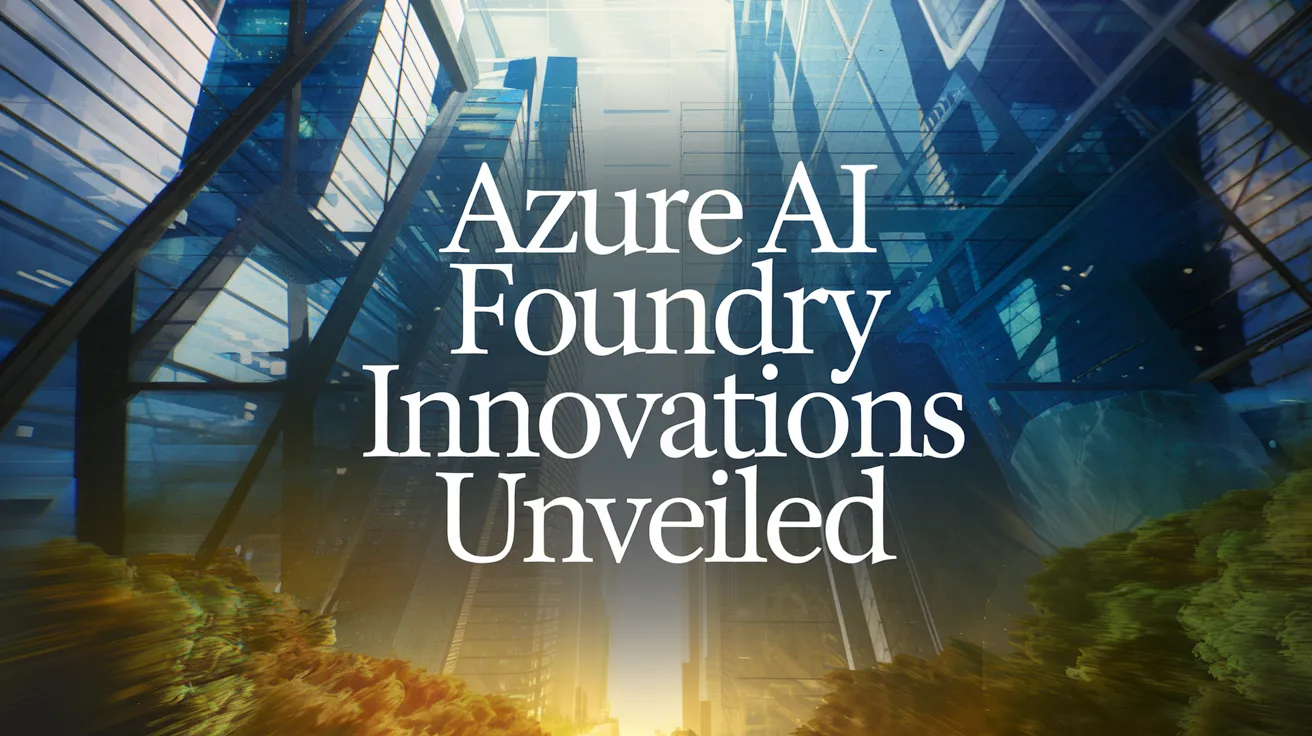Azure AI Foundry Innovations Unveiled

Software development is undergoing a significant transformation, driven largely by the capabilities of AI-powered tools. In contrast to the long, traditional timeline of software creation—weeks spent on planning and months on building—today’s environment enables rapid prototype development within hours and launches within days. Central to this shift is the integration of code, collaboration, and cloud solutions, culminating in an end-to-end platform that supports developers in realizing their ideas more efficiently. Microsoft stands out by providing a unified, AI-native development experience through tools like Visual Studio Code, GitHub, and Azure, effectively empowering developers to shape the future with AI.
With over 70,000 current customers and remarkable metrics, such as processing 100 trillion tokens last quarter and facilitating 2 billion daily enterprise search queries, Microsoft Azure AI Foundry has evolved significantly in just two years. What began as a simple application layer has grown into a full-stack platform, making strides in developing intelligent agents that deliver tangible business value.
Today at Microsoft Build 2025, we witness a noteworthy unveiling of ten innovations within Azure AI Foundry designed to enhance the power of AI agents and support more complex tasks.
New Models Expansion
Among the key innovations is the expansion of Azure’s model catalog, which now includes cutting-edge options like Grok 3 from xAI, Flux Pro 1.1 from Black Forest Labs, and Sora available in preview. With over 10,000 open-source models accessible in Foundry Models, Microsoft introduces extensive fine-tuning capabilities, allowing developers to tailor models to their specific needs. This includes the launch of a new developer tier for fine-tuning that alleviates hosting fees—a welcome change for those experimenting with AI.
Enhanced Model Selection
Another significant advancement is the smarter model system that incorporates a model router capable of selecting the appropriate Azure OpenAI model for every given task. This enhancement promises improved quality and reduced costs. Additionally, reserved capacity will be available for various models, ensuring consistent performance even during heavy usage—an essential feature for organizations relying on real-time operations.
AI Foundry Agent Service
The Azure AI Foundry Agent Service, now generally available, empowers users to design, deploy, and scale production-grade AI agents effortlessly. With more than 10,000 organizations—including major players like Heineken and Carvana—having utilized this service, its potential for automating complex business processes is evident. This fully managed service supports infrastructure and orchestration, facilitating seamless deployment into commonly used platforms such as Microsoft 365.
Multi-Agent Orchestration
Real-world applications often require multiple agents working collaboratively, and Azure recognizes this need. Multifaceted agent workflows can now manage complex interactions across any cloud, allowing agents to pass tasks between one another while maintaining context. This seamless orchestration, enhanced through interoperability standards like Agent-to-Agent communication, showcases a technological refinement that benefits various sectors, including finance and supply chain management.
Advanced Information Retrieval
With the introduction of agentic retrieval in Azure AI Search, information retrieval becomes more sophisticated. This new engine supports complex queries, improving answer relevance by approximately 40%—a valuable enhancement for enterprise-level data engagement.
Performance Monitoring and Diagnostics
The preview of Foundry Observability features introduces crucial performance monitoring capabilities, ensuring transparency and accountability for AI agents in production. With real-time insights integrated into Azure Monitor, organizations can make informed decisions based on agent performance metrics, aiding the continuous improvement of AI applications.
Identity Management and Security
Microsoft Entra Agent ID emerges as a significant tool for managing AI agent identities, providing businesses with control over access and permissions similar to individual user management. This focus on security is further evidenced by built-in governance tools aimed at preventing vulnerabilities and ensuring AI systems operate within established guidelines.
Commitment to Responsible AI
Microsoft emphasizes responsible AI development, integrating new features that help discover, protect, and govern AI systems effectively. This commitment includes proactive measures for monitoring agent behavior and addressing potential biases, along with improved content filtering systems for safeguarding against malicious activities.
Local Solutions for AI Deployments
Recognizing that not all AI solutions require cloud-based deployment, Foundry Local is introduced as a new runtime for locally-based AI models and agents. This flexibility allows for building cross-platform AI applications capable of functioning offline, thus catering to industries demanding real-time data processing in environments with limited connectivity.
Innovations in Foundry Labs
Lastly, Azure’s Foundry Labs is pushing the boundaries of AI development, with experimental projects focusing on autonomous agents that can generate entire machine learning workflows from minimal inputs. This innovative approach signifies a promising future where AI might increasingly play a role in its own evolution.
As Azure AI Foundry ushers in these innovations at Microsoft Build 2025, the potential to transform businesses and elevate AI technology is palpable. With the community of developers and businesses harnessing these capabilities, the future of AI looks more accessible, powerful, and trustworthy than ever before.